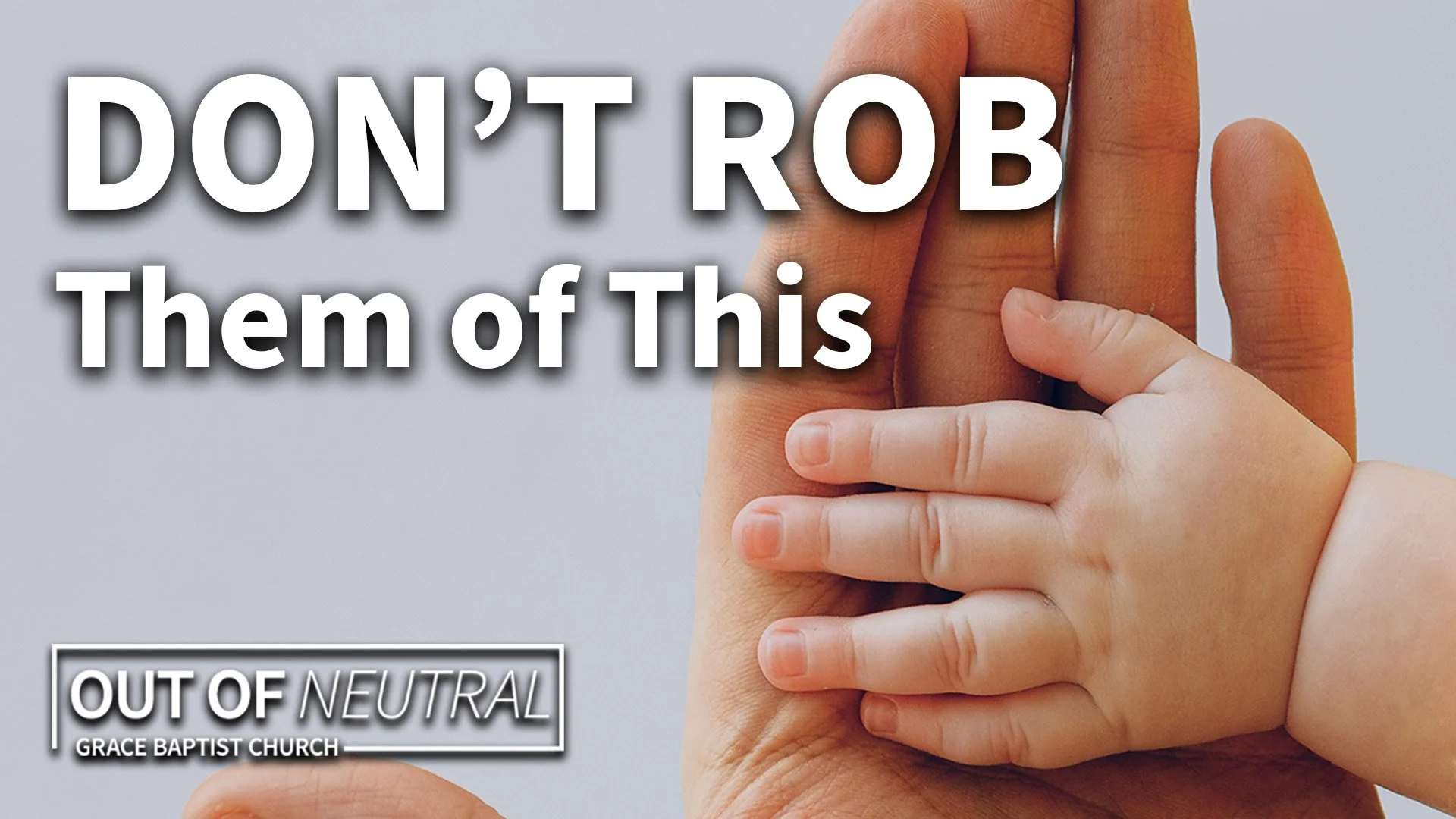Watch
Click on the image above for the video of this article or keep reading below for the text version.
Listen
Read
Jan Hunt is a parenting author and counselor who presents a popular approach to understanding children:
Children are born innocent. They want only to be loved, to learn, and to contribute. Those parents who are not able to appreciate this truth miss what should be the most precious moment of their life. They cannot trust their child - they instead suspect him of being somehow flawed and requiring constant correction. The emphasis is on fixing something, not on enjoying and learning about this new person. The focus, from that point on, is on the child's behavior, not on the parent-child connection.
The Bible presents a different view of children than Hunt but also different than the alternative to her view that she imagines. Let me explain how the Bible depicts children and how it influences your parenting.
Perhaps, one of the clearest expressions that children are born sinful comes from King David in Psalm 51:5. In this psalm, David is confessing his sins and regrets and as he does so, he concedes that he was sinful from the beginning. He says, “Behold, I was brought forth in iniquity, and in sin did my mother conceive me.” To be clear, he’s not charging his mother with sin or saying that there was anything sinful about the circumstances of his conception. He’s saying that he was marked by sin from the very beginning of his life. He wasn’t lying, cheating, or stealing in the womb. But he was born with a broken moral compass. As Jeremiah 17:9 says, “The heart is deceitful above all things, and desperately sick; who can understand it?”
Hunt is right in suggesting that people who don’t believe that children are born innocent see their children as “being somehow flawed.” As we’ll see, however, this is a perspective that gives children hope and encouragement. The part of the picture that the Bible adds, however, is that children are born in the image of God (Genesis 1:27). They are born with God’s imprint and so parents can wonder and celebrate the beauty of God’s creation and the hints of His handiwork that we see in our children (Psalm 139:14).
Despite the Scriptures I cite above, in a survey last year, 65% of Evangelicals agreed with the statement everyone is born “innocent in the eyes of God.” Consider three of the dangerous consequences of that belief.
1. If you believe children are born innocent, then they don’t need God
Children who are born innocent don’t need God. They don’t need a God to teach them, a Saviour to rescue them, the Spirit to empower them, or the Bible to guide them. They just need everyone to get out of the way and let them be true to themselves. But the Bible says the opposite. Proverbs 29:15, for example says, “a child left to himself brings shame to his mother.” Treating our children as innocent robs them of the relationship with God they need to thrive.
2. If you believe children are born innocent, then they’ll be unprepared to deal with regret
Putting an expectation of innocence on your child sets the child up for failure. Believing that a child will automatically demonstrate love, generosity, patience, and self-control because they’re innocent is like expecting your toddler to do backflips. It just won’t happen. When the child sins, you either have to redefine the sin as “not-sin” or you look the other way and teach your child to do the same. By contrast, the Bible calls parents to train their children in the way they should go (Proverbs 22:6; Ephesians 6:4) but with the knowledge that we all fail (Romans 3:23) and need a Saviour who can provide for our forgiveness (1 John 1:9). Treating our children as innocent robs them of the help they need to deal with their sins.
3. If children are born innocent, then children’s sin is all their parents’ fault
It sounds wonderful to say that parents should just enjoy and learn about their child and not worry about trying to “fix” them. But when the child’s behaviour becomes a problem, the parent ends up getting blamed. Since the child was innocent, people start pointing fingers at who might have corrupted the little angel, but the problem was assuming that the child was an angel to begin with. That makes children out to be victims and people who believe that they’re victims will never take ownership of their faults.
You don’t have to believe that a child is born innocent to care about the parent-child connection. We can celebrate the glimpses of God we see in children because they’re created in His image. We can give ourselves to the sacred responsibility we have to train our children. But because we do so as fellow sinners, we don’t just focus on right and wrong. We point them to the God who loves sinners enough to die for them (Romans 5:8). And we seek to imitate His love for us in the way that we love our children.
There’s hope in understanding that our children are born with a broken moral compass (and are parented by adults who also have a broken moral compass). That hope is in Jesus. Look to Him and point to Him as you seek to raise your children.
In awe of Him,
Paul













